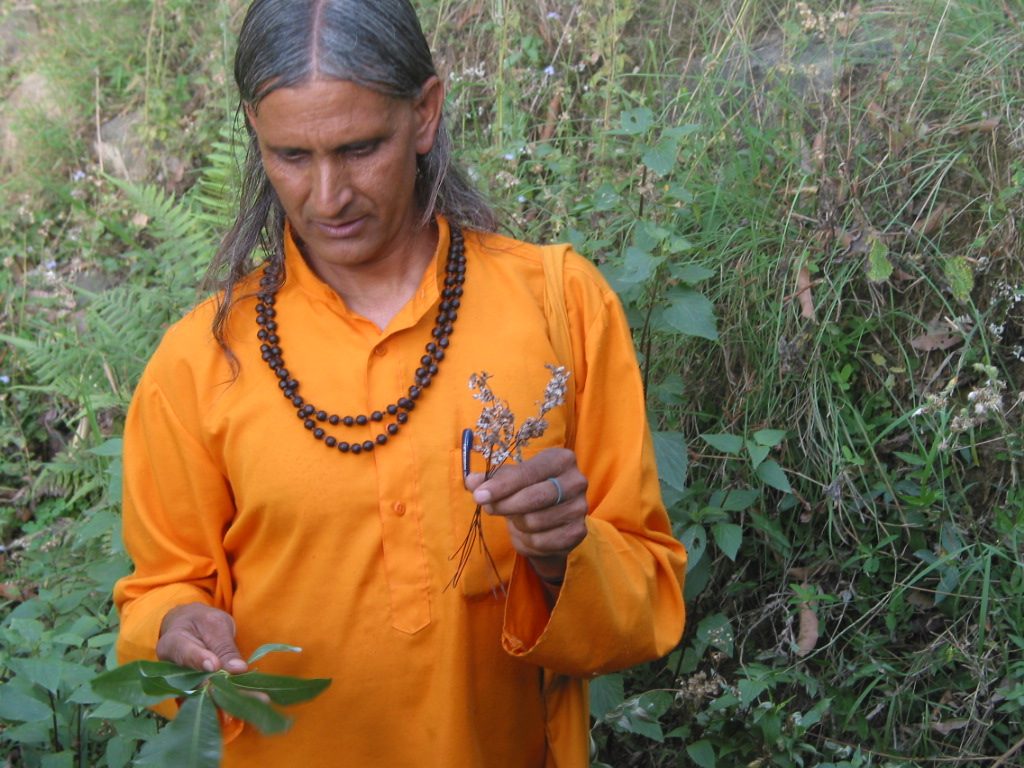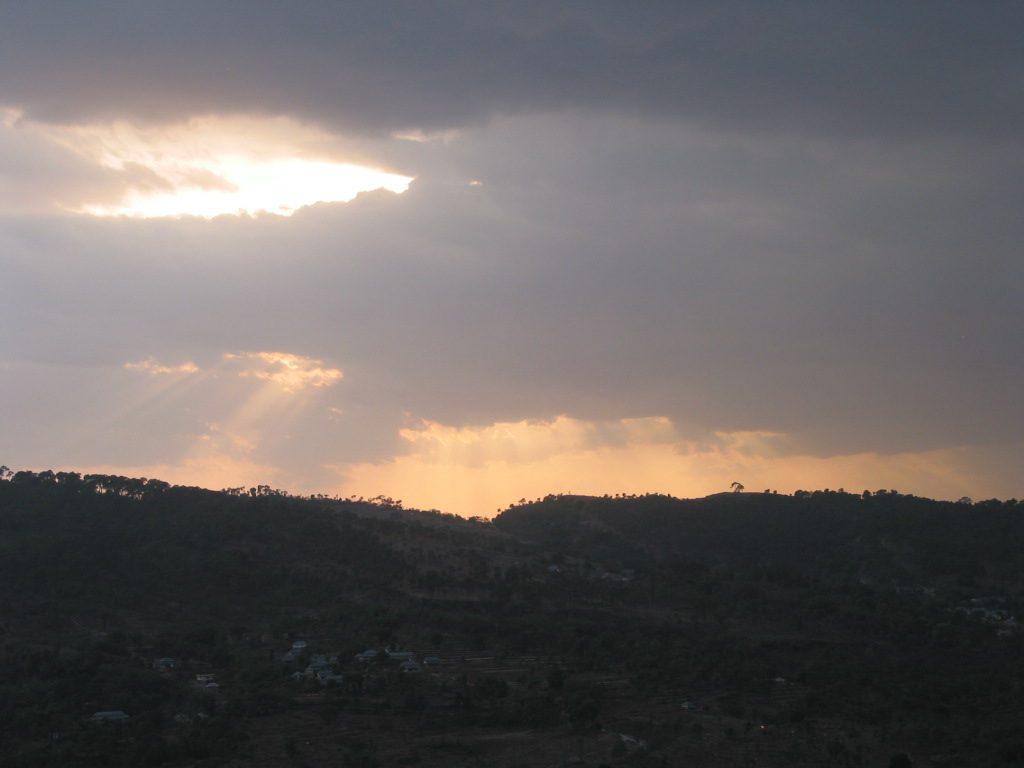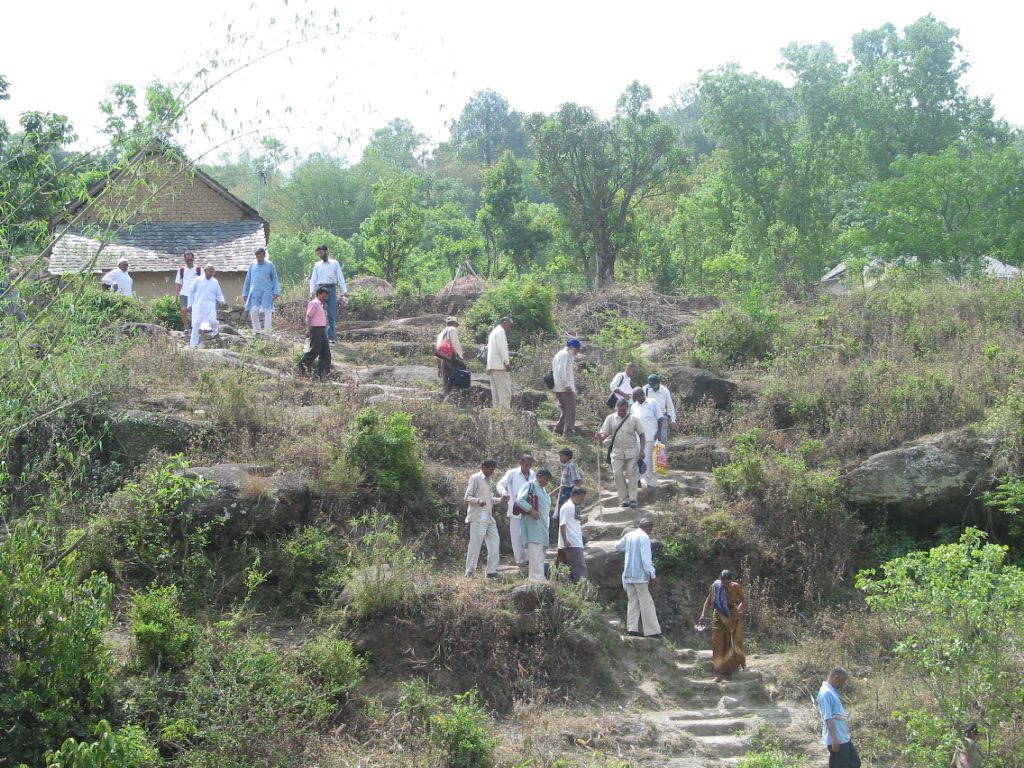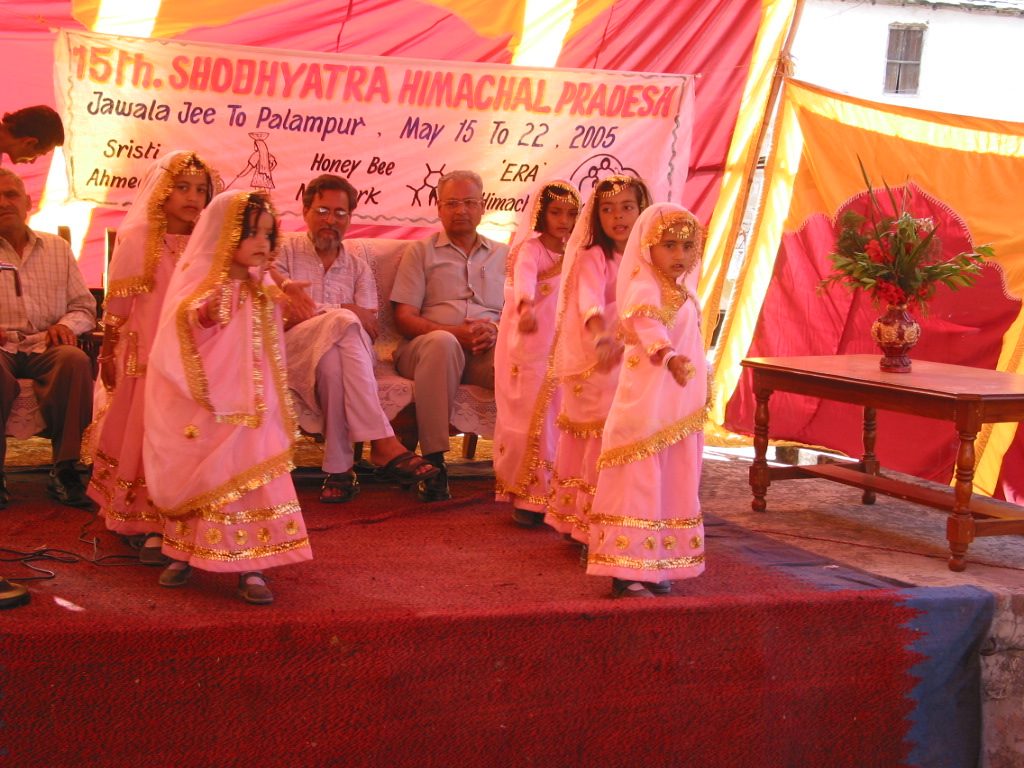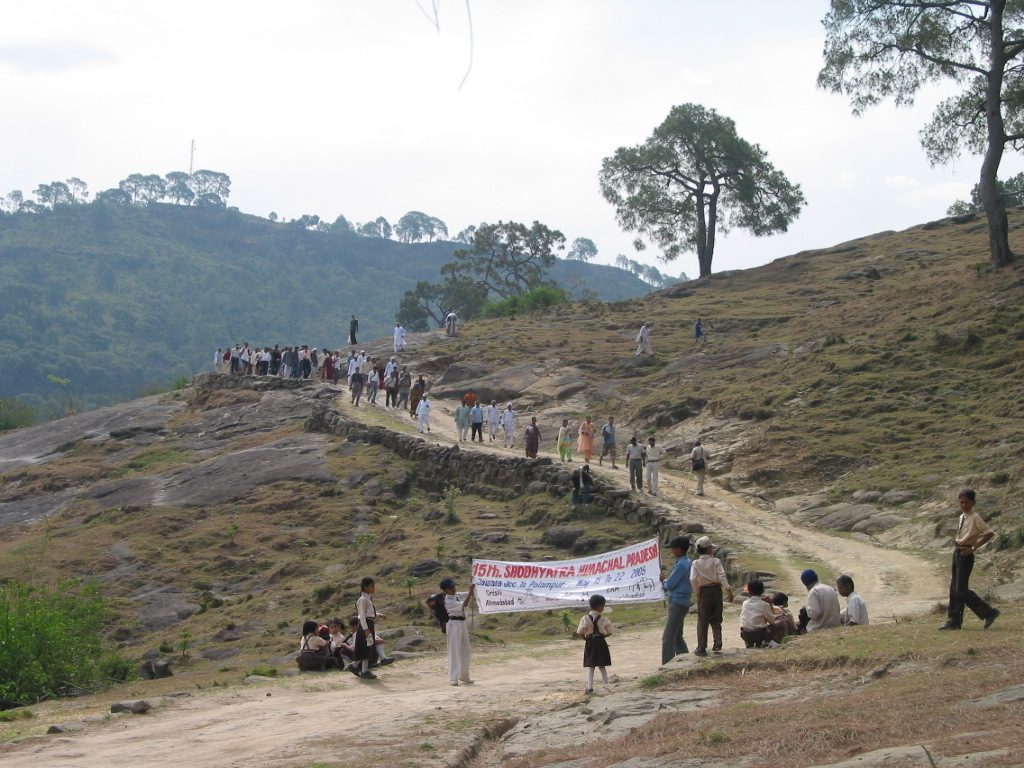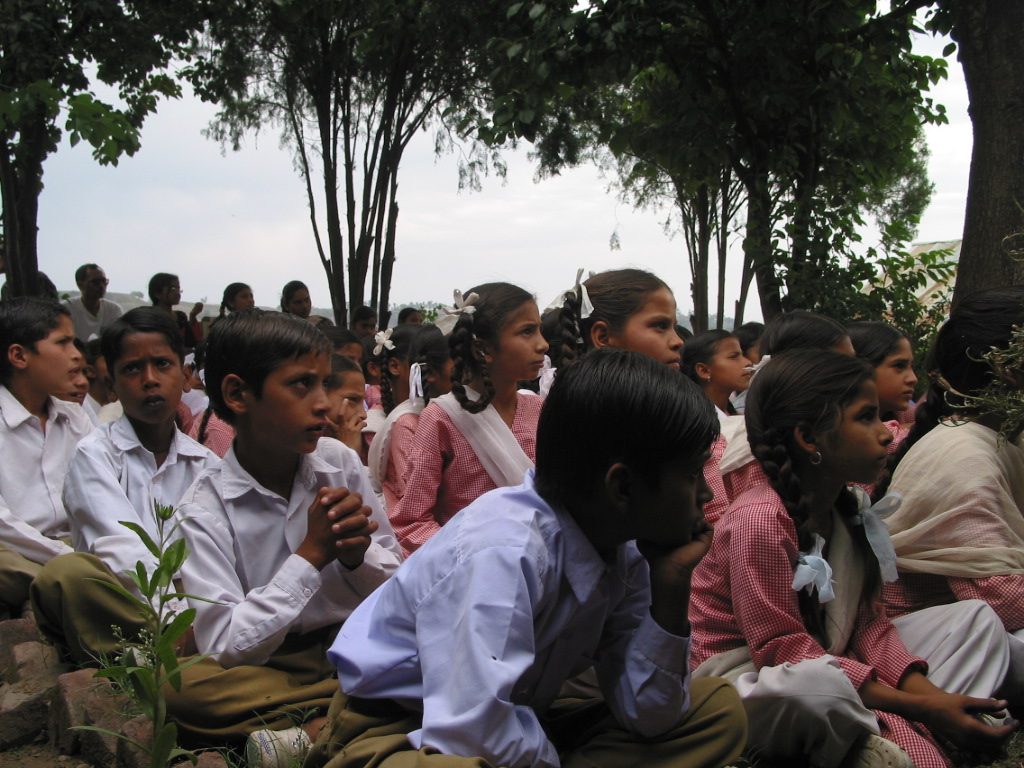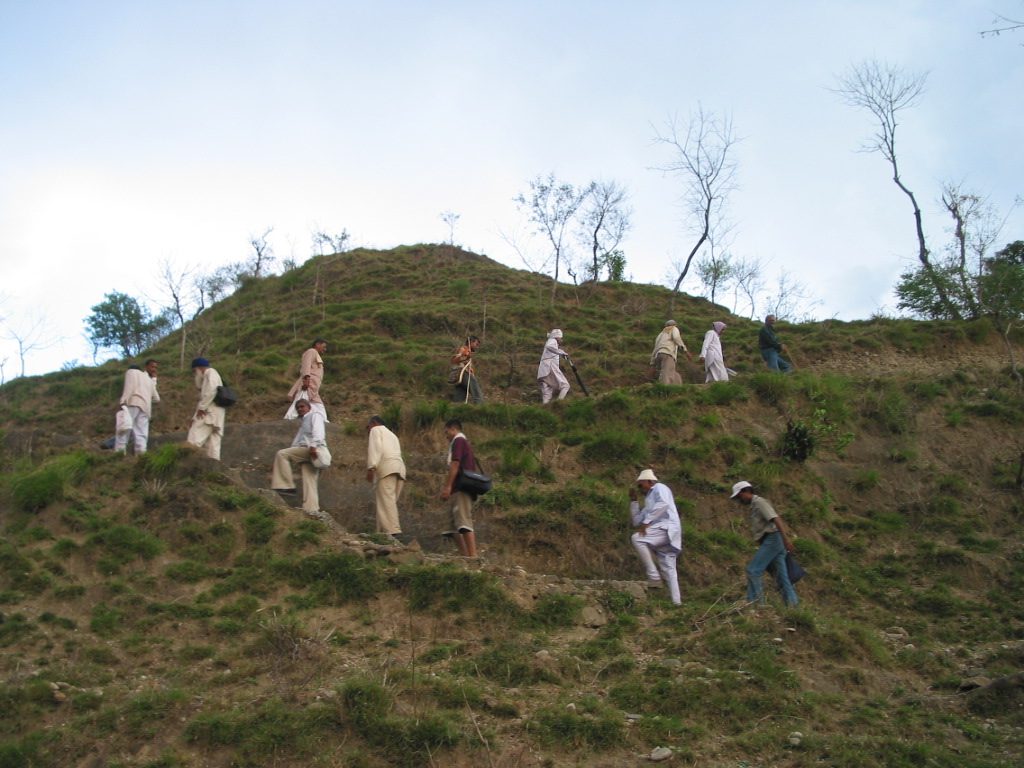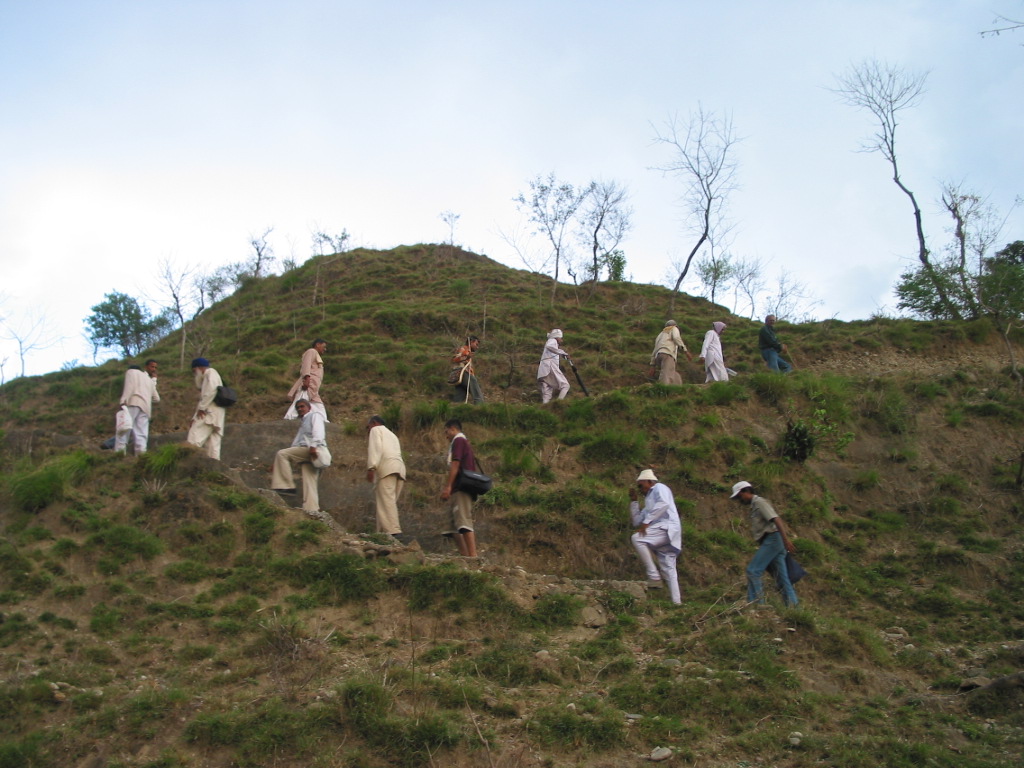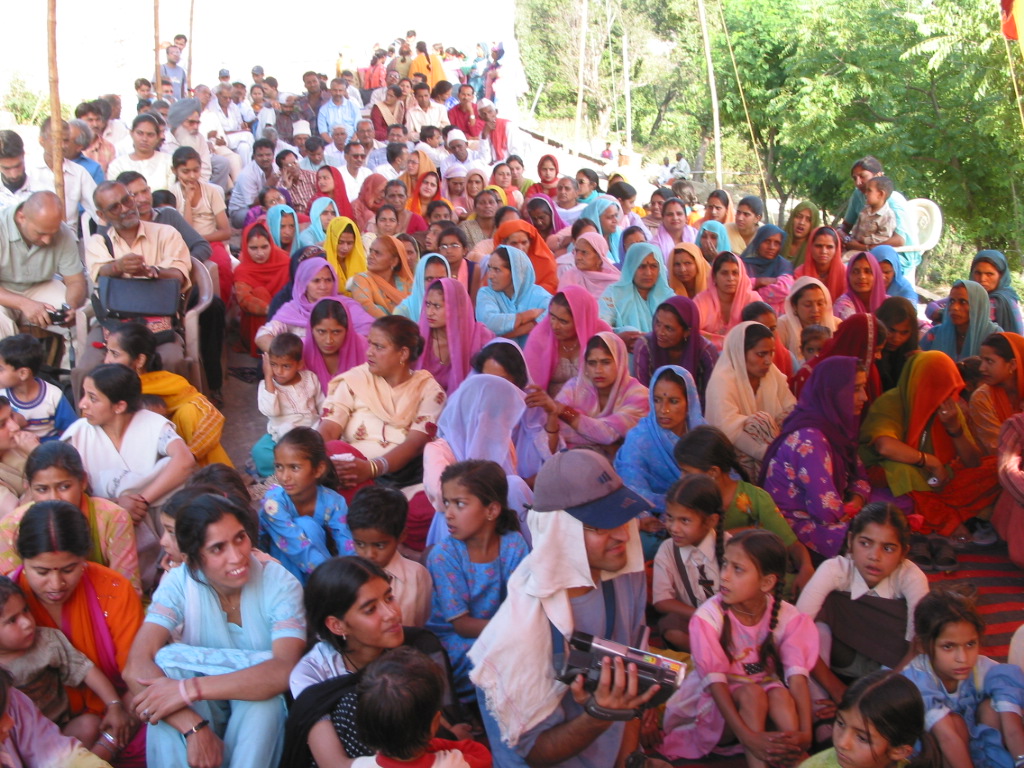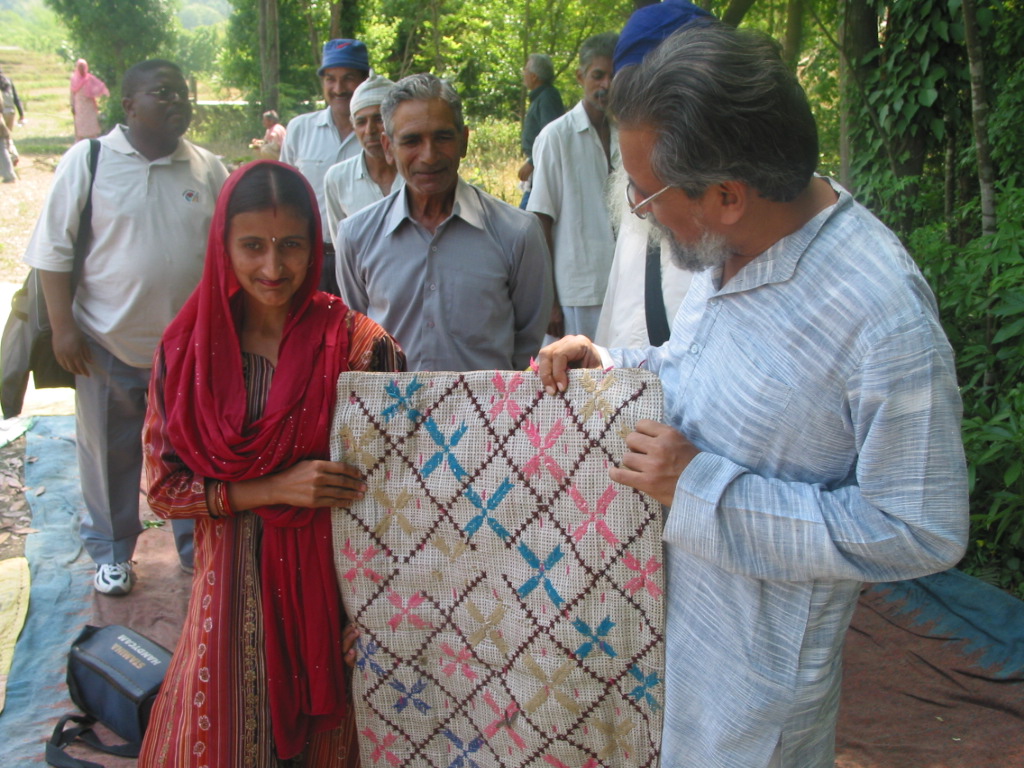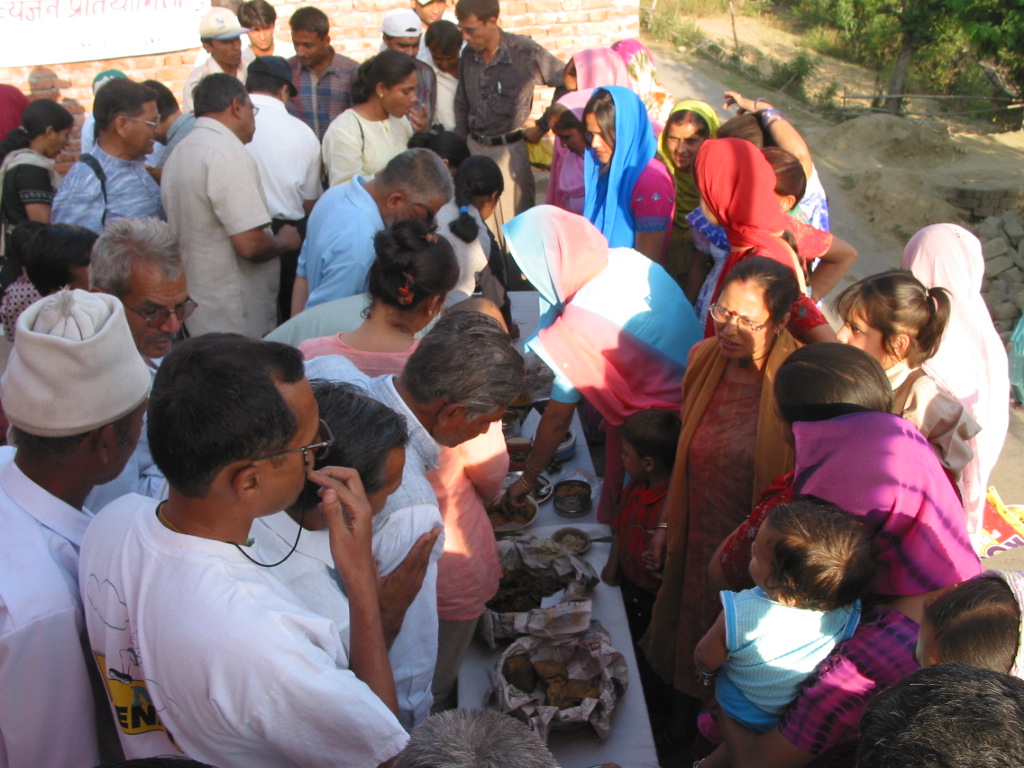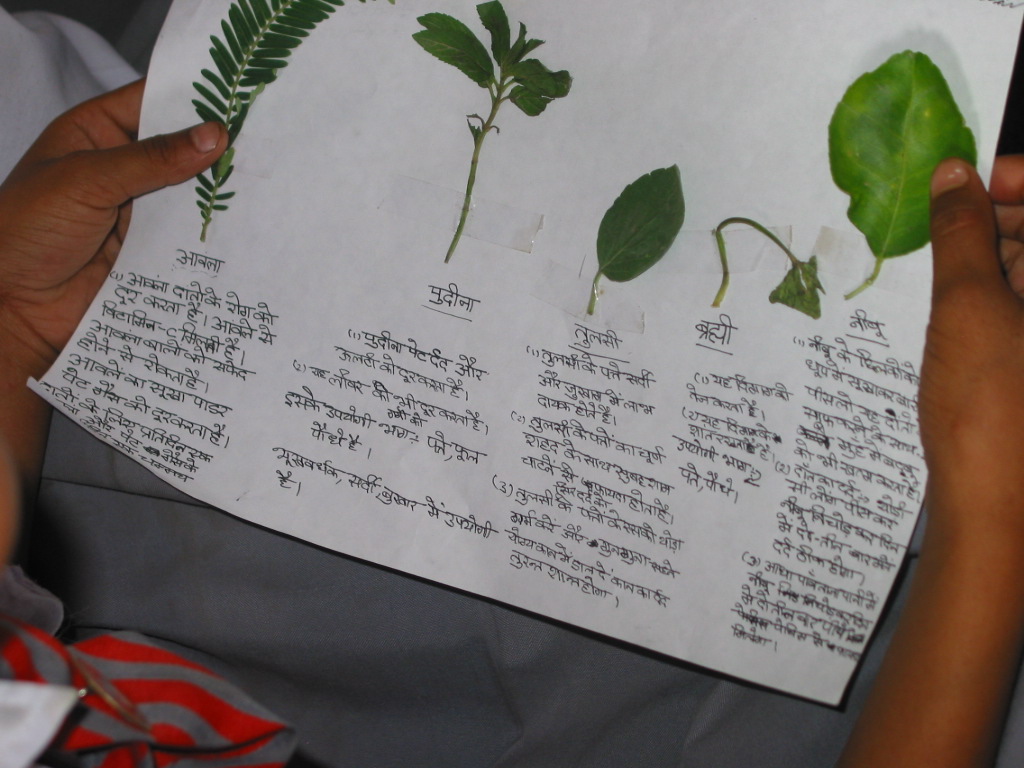Get Next Shodhyatra Update:
Phone:
079-27913293, 27912792
Email:
shodhyatra@sristi.org
15TH SHODHYATRA, MAZIN TO PALAMPUR (HIMACHAL PRADESH)
15th May to 22nd May from Majhin (Jwalaji) to Dadh (Chamunda)
Why do people go to the mountains, take the trouble of trekking and climbing new peaks? The answer perhaps lies in the very formidable nature of the mountains, their immensity compared to the smallness of man. The mountains thus hold a challenge to man.
This is the physical part. The peaks and valleys correspond to highs and lows in man. And the lack of free movement opens up the mind to introspection — the past, present and future. The setting is thus one of thought and creativity. Hence it is part of the curriculum.
MANAGING CONTRADICTIONS
Although I wasn’t sure what I was going to get from the course initially, my journey started a good 3 months before the actual trip began. It certainly wasn’t the trek part, since I’d never trekked before. As it turned out, I had to coordinate the effort with the students and drive a consensus on the route of our trip, apart from chalking out the logistics and coordinating with our host, Dr. A. Chandan. The first day of the trip was slightly tension-packed since I had to lease and lug around everybody’s trekking equipment for the better part of the day. As a result, we barely managed to catch the train. End of day 1, what turned out to be the most satisfying accomplishment was the help I managed to receive from the rest of the group and in some ways a sense of camaraderie that had already started sprouting.
The second day started early morning with some good tea at Pathankot station and a warm welcome by Dr. Chandan and the cultural council of Netrigaon and their chief, Dr. Gautam. His talk about the village’s culture and the council’s efforts to save the painting styles
of the villages and local dance-forms was an eyeopener. After breakfast, we started our Shodhyatra, and the sight of the paddy fields is still the first one to come to my mind as I think of the journey. Over the next two days, we stretched our physical selves to limits. We helped our friends while climbing, spent time by the streams, fetched water, ate together, looked after those who took ill amongst a whole set of other things. Although I realize that my learning from the course happened more in retrospect than during those few days, but these few days helped us develop friendships which I’m sure will last us a long way out of here.
Ekant Sansi
Being and Nothingness
Shodhyatra, which started as a zeal for trekking and an escapade from the hustle-bustle of daily life, turned out to full of varied experiences. The experiences were recourse to a lot of thoughts which were most of the time confusing and sometimes contradicting. At one point, it felt like I am not reaching anywhere.
Finally, something emerged, almost at the last leg of the journey, which left a mark for life.
The whole process of moving away and being put in a new surrounding made us a lot uncomfortable, but at the same time moved my mind away from the structured and restricted thought process imbibed by our daily lifestyle. Thoughts and experiences brought back to mind the goals that were set long back in life and pushed to the back of the mind by the chores of everyday life. My whole learning was more of reminder of those bigger goals in life. These can be summarized by Robert Frost’s famous poem, “Stopping by Woods on a Snowy Evening”
Mohan Raj Gupta
Whose woods these are I think I know, His house is in the village though. He will not see me stopping here, To watch his woods fill up with snow. My little horse must think it queer, To stop without a farmhouse near, Between the woods and frozen lake, The darkest evening of the year.
He gives his harness bells a shake, To ask if there is some mistake. The only other sound’s the sweep, Of easy wind and downy flake. The woods are lovely, dark and deep, But I have promises to keep, And miles to go before I sleep, And miles to go before I sleep.
Robert Frost
A journey within….
As we started to trek from Pathankot, one of the most humiliating experiences for me began. I always thought I was strong and can do whatever I want and there is nothing, which can overpower me, but nature proved to be far stronger than any of us. By the end we all were tired and exhausted. We got to know how powerful the mountains (nature) are. This display of natural power made me more humble and modest. We should learn to respect them and live in harmony with them.
The next day I got ill and was running a high temperature. Still I trekked for 10 kilometers up to Boh, true to my stubbornness and relentless self. Unfortunately, after resting in Boh, I had decided to go back Dharmshala in a jeep. I learnt how to accept defeat.
One more thing, which I always knew but not enforced is that we can never repay someone who helps us out in need because at that time that help is invaluable to us, no matter how much it costs the other person. The only way in which we can try to repay is that we go on helping other people in the same way as we were helped. Next day, one of my friends also took ill and had to leave the trek midway. But I woke up in the early morning and I was feeling better. While I was waiting for my friend to wake up, I thought why I was wasting my time and plans over my friend: I should go and visit the place and leave my friend behind. All bad thoughts I know, but these are reality. I discarded them because these thoughts were not in alignment with my values and principles. This is the crux of my insights and learning from Shodh Yatra.
Harish Sharma
During the personal interaction from Kareri village towards Dharamshala I had so many confusing thoughts meandering in my mind. At one end was the long-felt urge to be of some substantial help to society and bring in help in form of being involved and not mere kind or cash benevolence. And after doing one year of MBA here and seeing the lucrative and means of achieving fame and personal glory one’s mind at times wants to take the easier path of choosing a career. But deep down I also know that I will never be able to make peace with myself if I choose that path forever. A certain element of guilt strikes me over when I see myself idling away my time and not contributing to the effort that so many leaders have carved for making our place a more utilitarian society and for the cause of the have-nots. I am still pondering over that to contribute my mite in a more productive manner, especially to the people back home. I feel I need to be in a position of certain degree of power and financially well-off to create the funds towards providing start-up capital and catalyzing some small start-ups of people who are creative but have paucity of funds. That will go a long way in the youth of those parts not remaining disillusioned with the system and the unemployment situation will get reduced to a certain degree.
During this course I also realized that networking and connecting with people can bring forth new dimensions. Before the start of the course, there were around 15 people who I had not interacted with at a personal level and now after the course it seems like we have known each other for quite a while.
What this new formed relation has brought forward is that it has brought in the concept of healthy debate. What these talks have led into is the fact that one has started to become more sensitive to others’ thoughts and look at all sides of the coin. At times just taking one’s point of view might narrow down the options and channel of thought process so being open to newer ideas is always a welcome change for me. This course when I look back on it was a time when one could understand one’s roots and the raw spirit involved. Many a lesson was learnt during the course, some were as important as the need for conservation of our heritage and ecosystem, some were as trivial was to lend an ear to the ones when we are in interaction. I believe people open up more often and with greater veracity of truthfulness when such events take place out of campus.
Nilotpal Pegu
During the early part of Shodh Yatra, when I introspected about my need to be included in the group, to be praised and to be looked up to, I quickly brushed all these feelings under the carpet. For me it became a matter of pride that I had to complete
all the treks that the group undertook. I did not stop to think why I set my targets in comparison to the group. I was afraid that if I thought about why, I would not be able to achieve the target I had set.
Through my experiences during Shodh Yatra I observed that rural people are less risk averse than the middle class urban individuals. They are more enterprising by nature. Many of the rural women manage small businesses such as operating shops, selling milk, pickles and other such non-perishable items. They manage their homes frugally and yet manage three square meals for the family every day. I believe I have a lot to learn about taking risk and coping with adverse circumstances from rural women.
When I was struggling to keep up with the group, I realized that I felt demoralized when I thought that others in the group were way upfront. Later, through
introspection, I realized that I had the ability to stay on the move with ‘short breaks’. I did not need long breaks. I needed frequent short breaks to re-charge and move ahead. Also looking at only one step ahead helped me not to think about comparisons resulting in less depression and demaoralization. This realization has been important in my life. Whatever I say of the trek applies to my work life as well. I work better when I take frequent short breaks.. Shodhyatra started this journey of self-realization. I hope to keep up with these conservations with myself.
« Every one of us has in him a continent of undiscovered character. Blessed is he who acts the Columbus to his own soul.»— Author Unknown
Shailey Gera
Highs, Lows & Ideas
First of all, I got a chance to see real mountains. Coming from the South, this was a completely new experience for me, although it might appear trivial to most people. Having seen that, I found that the people everywhere are mostly the same. In every place there are nice people, those who help selflessly and those who do help, but not so selflessly. Having realized this, I became more open to new people and cultures. Sometimes we have a tendency to think that our way of life is possibly the best. Now I can see what is good about life in the mountains. I can also see the hardships the hill people face, and how vulnerable they sometimes become. Probably life does involve struggle, there is no escaping that.
During the yatra, it felt like we were doing things without a real, like what was the purpose of climbing yet another mountain. Looking back I feel that it was precisely the idea. To question our actions and ask ourselves Gauguin’s questions- who are we, where do we come from and where are we going? This ability to question is very often lost to us in the rush of daily life.
A lot of us realized that we have changed since coming to the IIMA. We have become a little sadder because we neglected some well-loved part of us, like the poet or writer in us. And we were confronted with the question of how many facets of our life can we afford to let go before we become strangers to ourselves.
I will admit that the climb was very tough on me. There were times when I just felt like giving up and going back. And I realized if I saw the journey as one whole stretch I would never make it to the end. One step was all I could take. And looking back, it was all I needed to do to reach the journey’s end. The mountains do detach you from the world and give a new perspective to things. I certainly did not forget the rat race because that is inside me. I can truthfully say that I never really got into the race, but there have been times when it depressed me for whatever reason. The journey made me realize how little we need in life. But it did make the race seem pointless. In the end, the race is only with self. Indu M Mukundan
FLICKR GALLERY
